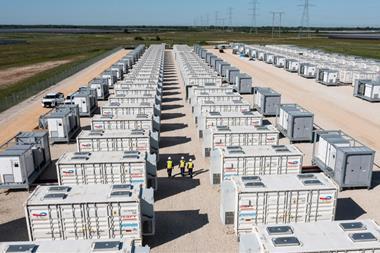The UK government is setting up a new national infrastructure bank to co-invest with the private sector, a strategy it believes will be necessary for the country’s economic recovery from the coronavirus pandemic.
In the National Infrastructure Strategy, presented to parliament by the Chancellor Rishi Sunak, the government will set aside £27bn (€30bn) new investment in economic infrastructure, as part of a wider £100bn spending review for 2021-22.
The investment will be in addition to the £8.6bn of capital investment in infrastructure, decarbonisation and maintenance projects during the summer.
The government has put forward a plan to “reduce policy uncertainty that holds back investment” and revealed the creation of a national infrastructure bank headquartered in the North of England.
The bank will co-invest with the private sector, and through the prime minister’s 10-point plan for a “green industrial revolution”, which will mobilise tens of billions of pounds of private investment.
“This decision to press on with high levels of investment, despite the fiscal pressures COVID-19 presents, marks the government’s commitment to end the stop-start pattern of investment that has been common in the UK in the past,” it said.
The government also plans to review the fiscal remit for the National Infrastructure Commission (NIC) next year to ensure it reflects its long-term ambitions, an announcement which indicates support for the NIC’s project recommendations.
Mark Brennan, director and head of investments at Foresight Capital Management, said: “With £100bn of government spending on infrastructure now planned through to 2022, today’s spending review represents a definitive commitment to substantial investment across social and economic infrastructure in the UK.
“Crucially, the government remains firmly committed the role of private capital, and the establishment of a UK Infrastructure Bank in 2021 could be a transformative catalyst for crowding-in private investment.”
Ted Frith, COO at GLIL Infrastructure, said the government’s long-term infrastructure strategy and today’s statement provide the clear commitment that private capital has been waiting for some time.
“Quite simply, with the support of a stable regulatory environment, these plans will help draw capital to the UK – much of which may have otherwise found its way to infrastructure projects elsewhere.
“For funds like ours, we’re most pleased for the Chancellor’s recognition of the role that private sector capital can play in funding projects, notably calling out the higher service levels that typically accrue to privately-run assets and making an explicit reference to the incredible quantum of capital from pension funds and insurers that can be leveraged to support its ambitions. The estimates of between £150bn and £190bn over the next 10 years demonstrate what an incredible opportunity there is transform UK infrastructure.
“The industry will be eager to hear further details in the Budget next year. In the meantime, the Chancellor’s statement has started to communicate the real economic and social benefits of infrastructure to the wider electorate – a sea-change in the national conversation that will help bolster support for projects when it comes to planning and getting spades in the ground.”
Darryl Murphy, managing director for infrastructure at Aviva Investors, said: “The announcement of the National Infrastructure Bank is not a major surprise arising from the findings of the Infrastructure Finance Review. However, it is important that it focuses on two key issues: addressing market failure, which is primarily in providing capital for early-stage technologies and commercial models in relation to investment towards net zero; and a principle of crowding-in private capital – either recycling early-stage capital or investing alongside private capital.
“The Treasury already has a suite of financing tools available in terms of the UK Guarantee Scheme and co-investments in equity funds, and we would assume these will fall under the remit of the NIB. We also welcome an entity which is focused on a conduit between the private finance and investment market and government policy in relation to infrastructure, and we look forward to working with the new institution.”
Mike Derbyshire, head of planning at property consultancy Bidwells, said: “It’s great to see the government doubling down on its infrastructure and housing investment commitments. But funding must be directed to the right places.
“Since 2010, spending on the English planning system has been cut by 55% – the greatest fall across council activities – meanwhile housing targets over the same period have increased by 50% to 300,000.
“There is an urgent need to provide local councils with the resources needed to deliver on the Government’s levelling-up agenda. Without the resources, councils, of whom are already over-stretched, simply won’t be able to deliver.”
Melanie Leech, British Property Federation CEO, said: “New infrastructure investment to connect and modernise places, while delivering on the government’s net-zero carbon commitments, will be fundamental to UK recovery, and the announcement of a new National Infrastructure Bank suggests the government understands the need for a long-term strategy and commitment to attract private sector investment alongside public spending.
“The outcome of the Green Book Review, which sets out changes to how government appraises and evaluates spending decisions, should also mean the private sector is able to partner more effectively with public investment to deliver wider economic, social and environmental benefits in an inclusive way across the country.”
To read the digital edition of the latest IPE Real Assets magazine click here.

















